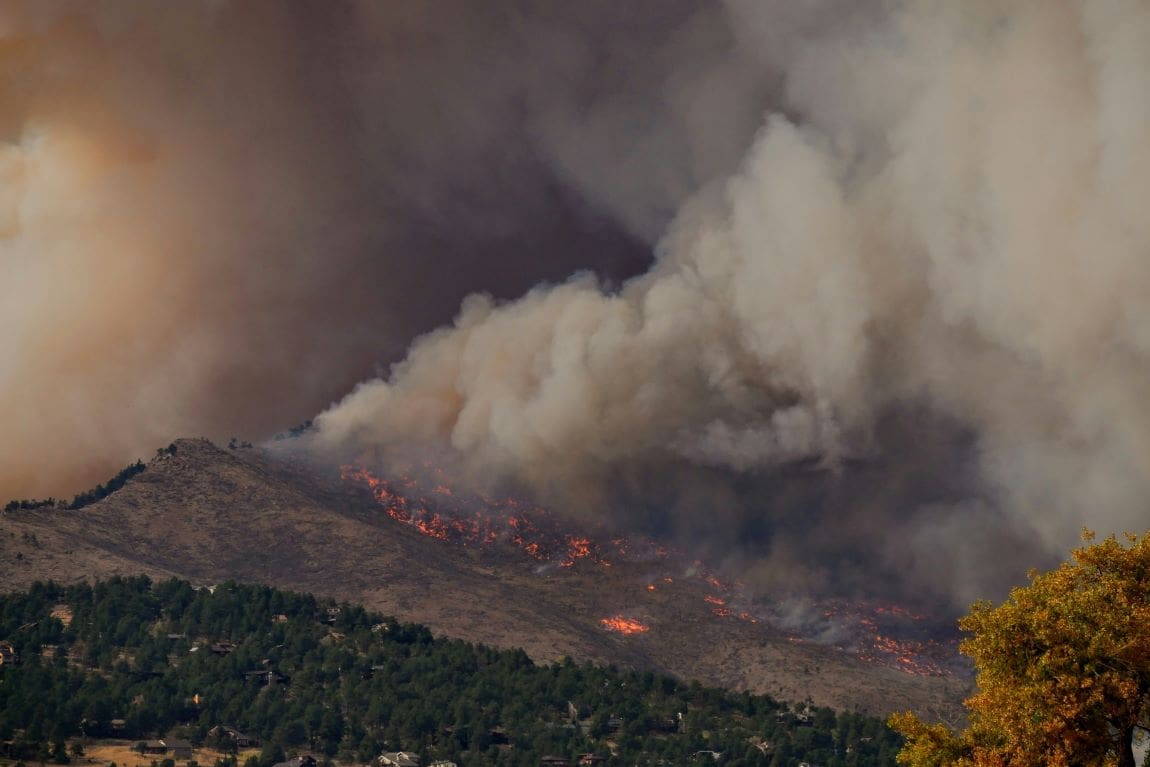Potsdam Institute for Climate Impact Research – Climate change is increasingly influencing fire behavior worldwide and intensifying fire smoke, endangering public health from air pollution caused by fires.
These are the results of two new climate change impact attribution studies, both published in Nature Climate Change, with involvement of the Potsdam Institute for Climate Impact Research (PIK).
The first study1 finds 15.8 percent higher global burned areas over the period 2003 to 2019 due to climate change, intensifying fire activity especially in Australia, South America, Western North America and Siberia.
These increasing fire dynamics offset the decrease in burned area due to land-use changes and increasing population density. Building on this, the second study examines how climate change is linked to a global increase in deaths from fire-related air pollution. Climate change increased these deaths from 669 annually in the 1960s to over 12,500 in the 2010s.
“Our study demonstrates that when fires do occur, the influence of climate change with drier and warmer weather conditions is increasingly significant,” explains Chantelle Burton, researcher at the Met Office Hadley Centre and joint lead-author of the first study.
In the paper, the researchers map the influence of climate change and socio-economic factors on global and regional ‘burned area’ from wildfires in forests, savannahs etc.
Using a comprehensive ensemble of global fire-vegetation models, they show that climate change has increased the global burned area by 15.8 percent from 2003 to 2019 compared to a situation without climate change, with hotspots in Australia, South America, Western North America and Siberia – major fire-prone regions.
For the same period, they illustrate that climate change made months with above-average burned areas more likely. Yet, overall, global total burned area is decreasing as natural lands are converted for human uses, such as agriculture, which has reduced available areas for fires by about 19 percent over the same period. While these trends currently offset each other, the researchers find that the effect of climate change on fires is increasing over time, as the climate continues to warm.
Air pollution from fires poses a health risk to the population
The second study2 assesses the global impact of climate change on air pollution from fires and associated health risks over the past 60 years.
The team of researchers finds that fire-related deaths from air pollution have risen from 46,401 annually in the 1960s to 98,748 in 2010s. Among those, 669 annually in the 1960s to over 12,500 in the 2010s can be attributed to climate change, according to the scientists.
“This indicates that climate change is increasingly posing a threat to public health, driven by more fire smoke even affecting densely populated areas,” explains Chae Yeon Park, researcher at the Japanese National Institute of Advanced Industrial Science and Technology and lead author of this study.
Fire smoke contains extremely small particles. These particles are small enough to enter the respiratory system and pose significant health risks causing pulmonary and respiratory diseases. Regions like South America, Australia, and Europe experienced the most significant increases in fire mortality attributed to climate change, coinciding with hotter, drier conditions caused by global warming.
While decreasing humidity and rising temperatures are increasing fire risks, the researchers also observed that in some areas, such as South Asia, increasing humidity led to fewer deaths from fires that are due to climate change.
“It’s crucial to understand that the impact of smoke from fires extends beyond those living directly in the affected areas – it also significantly affects people living in cities,” concludes Christopher Reyer, PIK researcher and co-author of the study. “While cities might not face immediate fatalities from wildfires, our study confirms that smoke exposure can lead to serious public health consequences. Thus, it is vital to reduce emissions and enhance fire management strategies, to minimize the impacts of fires on ecosystems, economies, and public health across the globe.”
Journal Reference:
1. Chantelle Burton and Seppe Lampe, Douglas I. Kelley, Wim Thiery, Stijn Hantson, Nikos Christidis, Lukas Gudmundsson, Matthew Forrest, Eleanor Burke, Jinfeng Chang, Huilin Huang, Akihiko Ito, Sian Kou-Giesbrecht, Gitta Lasslop, Wei Li, Lars Nieradzik, Fang Li, Yang Chen, James Randerson, Christopher P.O. Reyer, Matthias Mengel, ‘Global burned area increasingly explained by climate change’, Nature Climate Change (2024). DOI: 10.1038/s41558-024-02140-w
2. Chae Yeon Park, Kiyoshi Takahashi, Shinichiro Fujimori, Thanapat Jansakoo, Chantelle Burton, Huilin Huang, Sian Kou-Giesbrechte, Christopher P.O. Reyer, Matthias Mengel, Eleanor Burke, Fang Li, Stijn Hantson, Junya Takakura, Dong Kun Lee, and Tomoko Hasegawa, ‘Attributing human mortality from fire PM2.5 to climate change’, Nature Climate Change (2024). DOI: 10.1038/s41558-024-02149-1
Article Source:
Press Release/Material by Potsdam Institute for Climate Impact Research (PIK)
Featured image credit: Malachi Brooks | Unsplash




